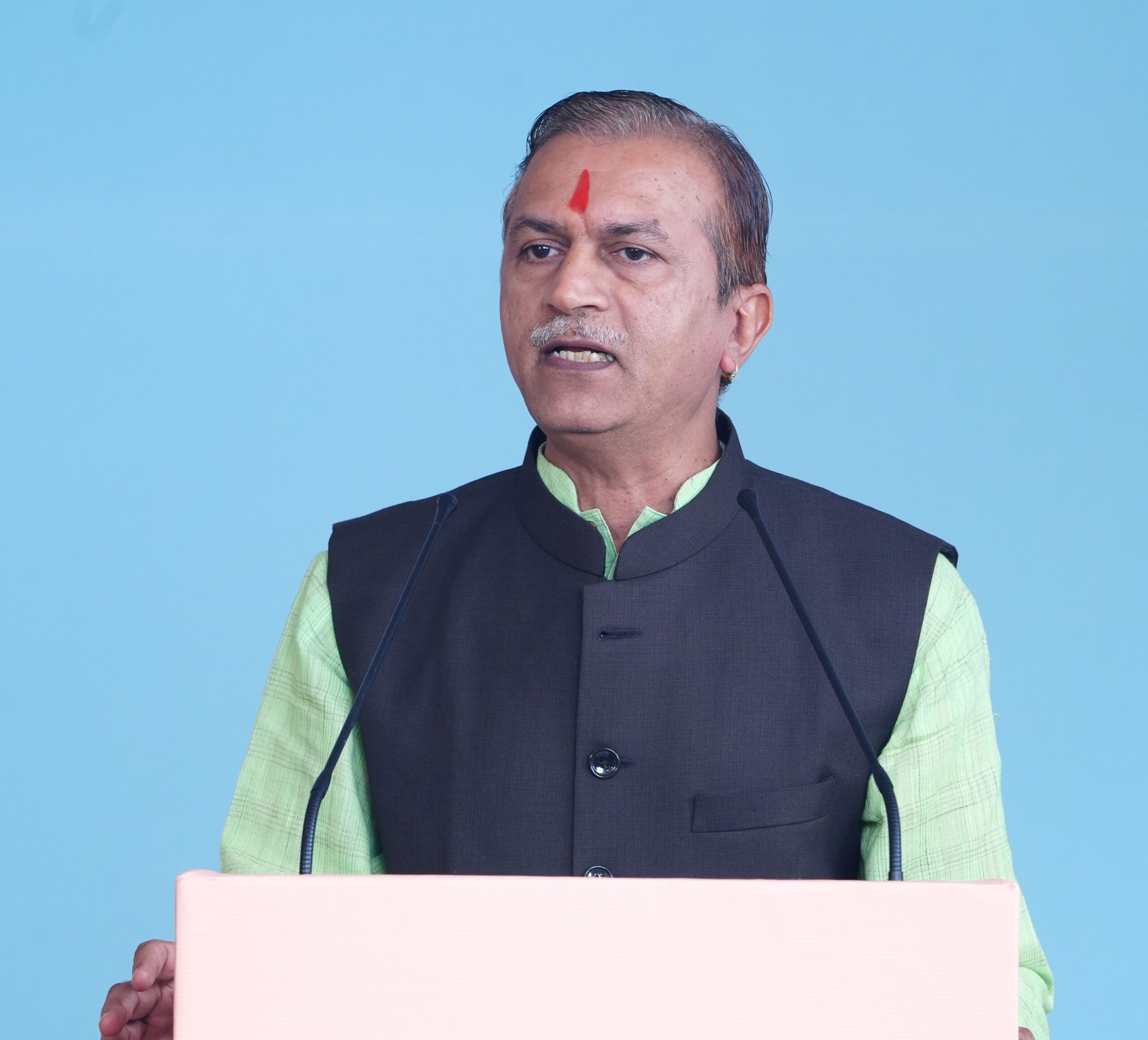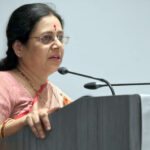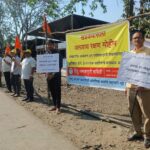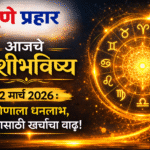“Bharat is a land of temples. Temples have been the gatekeepers of our identity and our ethos. However, these days, the trustees deposit the donations and wealth of their temples in banks and other financial institutions. Thus, this wealth does not get utilised for Dharma as it contributes only to enhanced bank balance. On the other hand, there are many old temples in a sad state, which remain neglected. Hence, the money collected as donations from devotees should be utilised to renovate such old and dilapidated temples. It is also important that the original architecture and overall layout remains the same to a larger extent to maintain the sanctity of such temples”, said Mr Girish Shah, Managing Trustee, Samast Mahajan NGO, Mumbai, Maharashtra. He was addressing a session on – ‘Effective Temple Management (Administrative, Financial, and Cultural)’ as part of the 5th day of the ‘Vaishvik Hindu Rashtra Mahotsav’ in Ponda, Goa.
On this occasion, Dr Ankit Shah (Advisory Board Member, GLIC, Gujarat) addressed a session on – ‘The Economics of Temple Management’. He said, “Karl Marx introduced a dangerous system of providing freebies; thanks to the (read dirty) vote bank politics, it soon became prevalent in India. On the contrary, Indian Economics emphasises the importance of standing on one’s own feet and becoming self-reliant. During old times, the Education System relied heavily on ‘Economics of Temple Management’ for funding. In addition, the villages were planned by careful deliberation of the economics of the temples in those areas. ‘Effective Economics of Temple Management’ was the backbone of the ‘Indian (Traditional) Educational System’. During that period, the Sages would finalise the curriculum. However, thanks to the Mughals and the British, our ancient Educational System was replaced by Communism and Capitalism which destroyed the age-old system of ‘Economics of the Temple Management’. Hence, it becomes imperative to educate Hindus on the Economics of Temple Management to help Dharma regain its past glory.
Hindus should get education on Dharma during their visits to a temple –
Pujya Prof. Pawan Sinha Guruji, Founder, Paavan Chintan Dhara Ashram.
The temple priests should not only apply tilak to the Hindus who visit the temple but also impart education on Dharma to them. It will enhance their pride in Dharma, boost their morale and all Hindus will get united. In the present times, it is necessary to obtain the authentic knowledge of the Scriptures from the priests so as to be able to refute the false propaganda about Hindu Dharma made by the secularists. There should be some rules to be followed while visiting temples. Everyone has to perform the satseva of cleaning in the temple; unless that is done the individual’s Chetana cannot be awakened, asserted Pujya Prof. Pawan Sinha Guruji, Founder, Paavan Chintan Dhara Ashram.
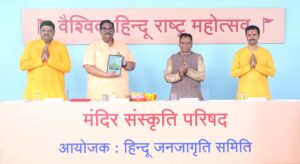
On this occasion, former Charity Commissioner Dilip Deshmukh said, “Temples need to take care of certain things so that their management is not taken over by the Government. It mainly requires the trustees to follow the ‘Maharashtra Public Trust Act 1950’, the trustees should try to avoid conflicts, keep the temple well managed, the temples should prepare their budgets on time, the temples should keep their register of immovable and movable assets, etc. Along with these things the devotees should donate to only those temples which are not under the control of the Government”.
On the occasion of ‘Vaishvik Hindu Rashtra Mahotsav’, Jagadguru Shankaracharya Vijayendra Saraswathi of Kanchi Kamakoti Peetham and H.H. Govind Dev Giriji Maharaj have sent blessing-form messages. At the time, Sanatan Sanstha’s Gujarati ‘e-book’ ‘Introduction to Spirituality’ was published at the hands of Pujya Prof. Pawan Sinha Guruji.
